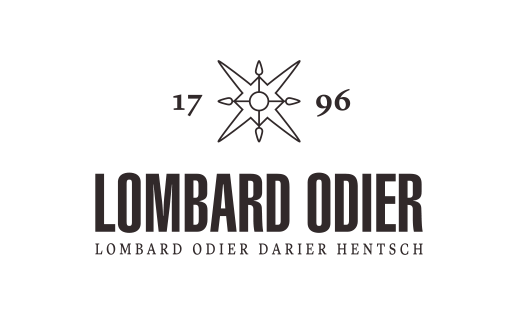

Lombard Odier

Canton of Geneva, Switzerland
March 2019
Investment advising
Service with Minor Environmental Footprint
Bahamas The,
Belgium,
Bermuda,
Brazil,
France,
Germany,
Hong Kong S.A.R.,
Israel,
Italy,
Japan,
Luxembourg,
Netherlands The,
Panama,
Singapore,
Spain,
Switzerland,
United Arab Emirates,
United Kingdom,
United States
their purpose is to help entrepreneurs, families and private individuals preserve, grow and transmit their assets, responsibly, over time. As a privately owned bank, they're free from market pressures and external public shareholders looking for ever-improving quarterly results. Instead, they can focus on serving their clients for the long term. Their ambition is to secure a sustainable future for generations to come. At Lombard Odier they believe sustainability is the largest investment opportunity in history, and B Corp recognition is another milestone in their journey to act as both a profitable and a purposeful business. As a leading financial institution, they are determined to make a positive contribution to society.
Overall B Impact Score
Governance 18.3
Governance evaluates a company's overall mission, engagement around its social/environmental impact, ethics, and transparency. This section also evaluates the ability of a company to protect their mission and formally consider stakeholders in decision making through their corporate structure (e.g. benefit corporation) or corporate governing documents.
What is this? A company with an Impact Business Model is intentionally designed to create a specific positive outcome for one of its stakeholders - such as workers, community, environment, or customers.
Workers 22.4
Workers evaluates a company’s contributions to its employees’ financial security, health & safety, wellness, career development, and engagement & satisfaction. In addition, this section recognizes business models designed to benefit workers, such as companies that are at least 40% owned by non-executive employees and those that have workforce development programs to support individuals with barriers to employment.
Community 16.8
Community evaluates a company’s engagement with and impact on the communities in which it operates, hires from, and sources from. Topics include diversity, equity & inclusion, economic impact, civic engagement, charitable giving, and supply chain management. In addition, this section recognizes business models that are designed to address specific community-oriented problems, such as poverty alleviation through fair trade sourcing or distribution via microenterprises, producer cooperative models, locally focused economic development, and formal charitable giving commitments.
Environment 8.3
Environment evaluates a company’s overall environmental management practices as well as its impact on the air, climate, water, land, and biodiversity. This includes the direct impact of a company’s operations and, when applicable its supply chain and distribution channels. This section also recognizes companies with environmentally innovative production processes and those that sell products or services that have a positive environmental impact. Some examples might include products and services that create renewable energy, reduce consumption or waste, conserve land or wildlife, provide less toxic alternatives to the market, or educate people about environmental problems.
Customers 45.1
Customers evaluates a company’s stewardship of its customers through the quality of its products and services, ethical marketing, data privacy and security, and feedback channels. In addition, this section recognizes products or services that are designed to address a particular social problem for or through its customers, such as health or educational products, arts & media products, serving underserved customers/clients, and services that improve the social impact of other businesses or organizations.
What is this? A company with an Impact Business Model is intentionally designed to create a specific positive outcome for one of its stakeholders - such as workers, community, environment, or customers.